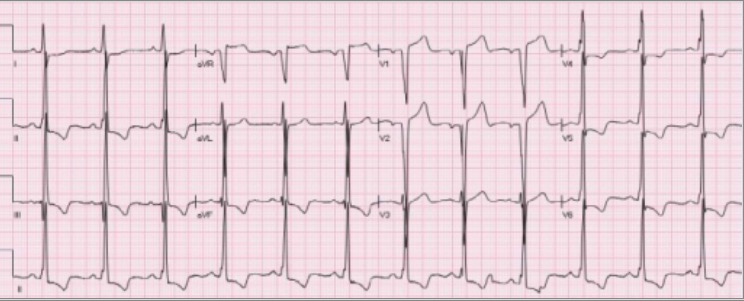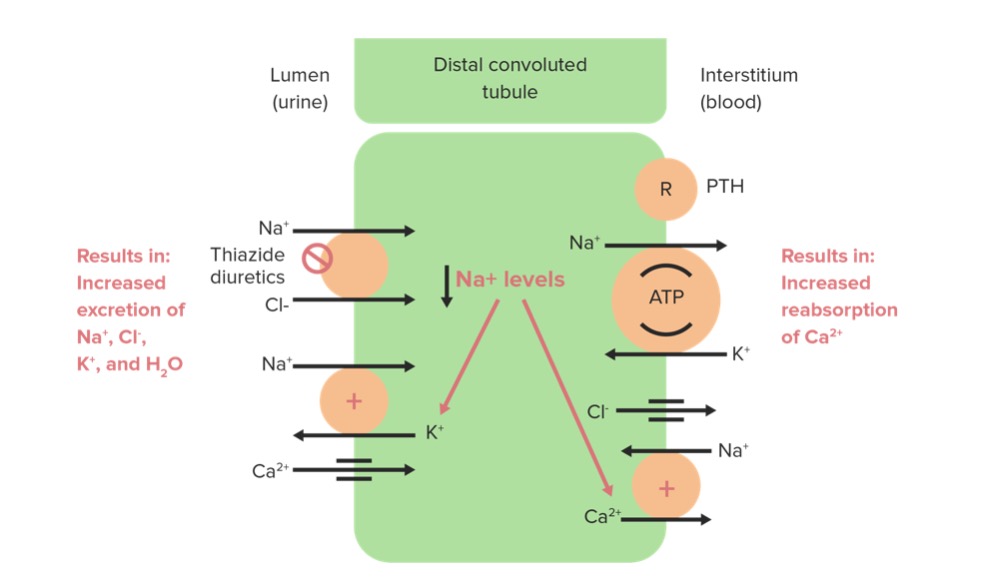Playlist
Show Playlist
Hide Playlist
Hypertension: Specific Treatment
-
Slides Hypertension ChronicCare.pdf
-
Download Lecture Overview
00:01 And, of course, there's – JNC 8 includes some specific recommendations based on the patient you may see and these are good things that may come up on your examination. 00:09 Certainly, come up in clinic. 00:11 Black patients respond better to drugs like calcium channel blockers and thiazide diuretics versus drugs like ACE inhibitors. 00:18 If they have chronic kidney disease, try to initiate an ACE inhibitor or an ARB and titrate to at least moderate doses. 00:25 It will slow the progression of chronic kidney disease. 00:28 Of course, watch the creatinine and watch the potassium in those patients too. 00:33 Among patients with coronary artery disease, the best drugs are beta blocker and an ACE inhibitor or an angiotensin receptor blocker for preventing recurrent cardiac events. 00:45 In diabetes, start an ACE inhibitor or an ARB because it can help with nephropathy. 00:51 Interestingly though, remember that patients who don't have nephropathy don't necessarily benefit from an ACE or an ARB when they have diabetes, so it's really only after they develop nephropathy or when they have diabetes and hypertension that you introduce an ACE or ARB. 01:08 And then, finally, non-dihydropyridine calcium channel blockers can be effective. 01:13 They can't tolerate an ACE or an ARB in those patients with diabetes. 01:18 And we’ll talk – heart failure requires a few different drugs. 01:22 The core drugs are listed there, usually a RAS inhibitor, plus a beta blocker, and then consider spironolactone for those patients too. 01:31 That’s a lot. 01:32 And you can feel really stressed out and lost, and I understand that, but you don't want to get too overly focused on the initial choice. 01:42 I see a lot of clinicians really struggling. 01:44 Okay, what's the best choice for my patient. 01:47 JNC 8 gives you latitude between several different classes of drugs, but don't worry about it too much because oftentimes you're going to be adding a second or even a third agent on to those patients with hypertension. 01:57 So, the one you start now will be a solo act for only the next two to four weeks till you evaluate the patient again. 02:04 If their blood pressure is still up, you might add a second agent. 02:07 Also note, some medical societies suggest starting with two-drug combination therapy right off the bat for patients starting with more significant hypertension, since combination therapy tends to be more effective at reaching blood pressure goals and reduces the risk of dose-related side effects. 02:24 And then, also when choosing drugs, don't forget that, really it's that number is the most important thing. 02:31 So, say, you have a patient with diabetes and nephropathy, but they really have a hard time taking any of those drugs, the non-dihydropyridine calcium channel blocker, ACE inhibitor, ARB, they can't tolerate any of them, but they really enjoy – and what they – the only thing they can tolerate is an alpha antagonist or a beta blocker. 02:50 It’s not the ideal drug for that patient, but if it gets their blood pressure down towards goal, that's much more important than getting them just on the right drug for their chronic medical condition. 03:03 Hopefully, that was really helpful in our brief review of hypertension. 03:06 I enjoyed it. 03:07 I enjoyed preparing it. 03:09 And I think it'll help a lot of your patients. 03:11 Thanks.
About the Lecture
The lecture Hypertension: Specific Treatment by Charles Vega, MD is from the course Chronic Care.
Included Quiz Questions
In patients with type 2 diabetes and albuminuria, which of the following is the most appropriate first-line pharmacotherapy for hypertension?
- Angiotensin-converting enzyme inhibitors
- Calcium channel blockers
- Thiazide diuretics
- Beta blockers
- Loop diuretics
Which of the following medications improves cardiovascular outcomes in patients with hypertension who have myocardial infarction?
- Beta-blockers, angiotensin-converting enzyme inhibitors
- Calcium channel blockers, thiazides
- Calcium channel blockers, angiotensin II receptor blockers
- Beta blockers, spironolactone
- Beta blockers, alpha blockers
In addition to a beta-blocker and an angiotensin-converting enzyme inhibitor, which of the following medications is most appropriate in a heart failure patient that remains symptomatic for heart failure and has not attained goal blood pressure?
- Spironolactone
- Hydrochlorothiazide
- Amlodipine
- Prazosin
- Furosemide
Customer reviews
5,0 of 5 stars
| 5 Stars |
|
5 |
| 4 Stars |
|
0 |
| 3 Stars |
|
0 |
| 2 Stars |
|
0 |
| 1 Star |
|
0 |





